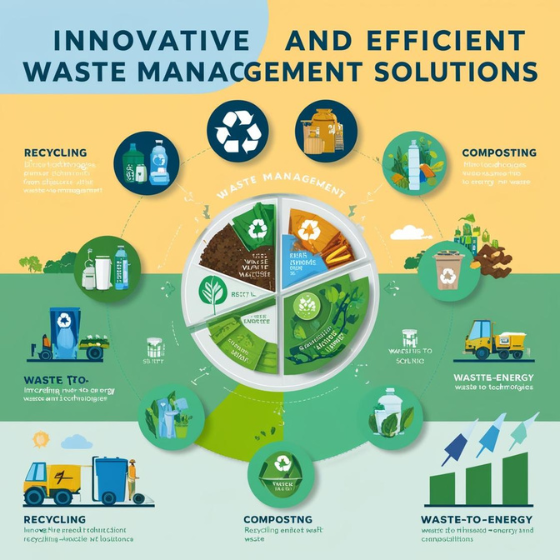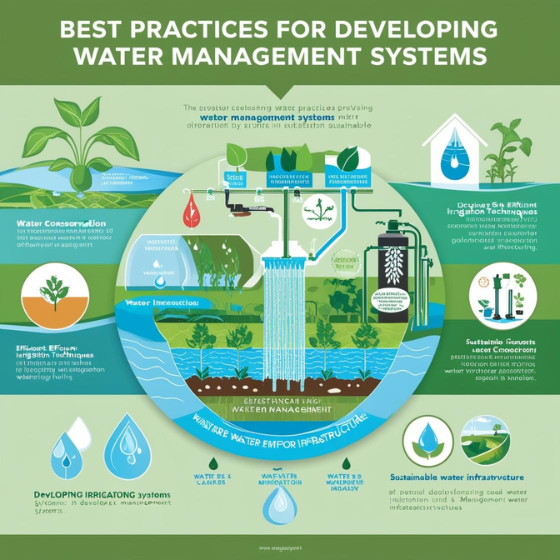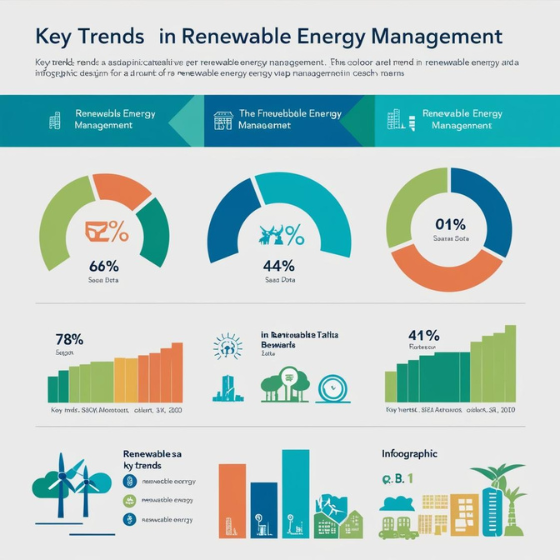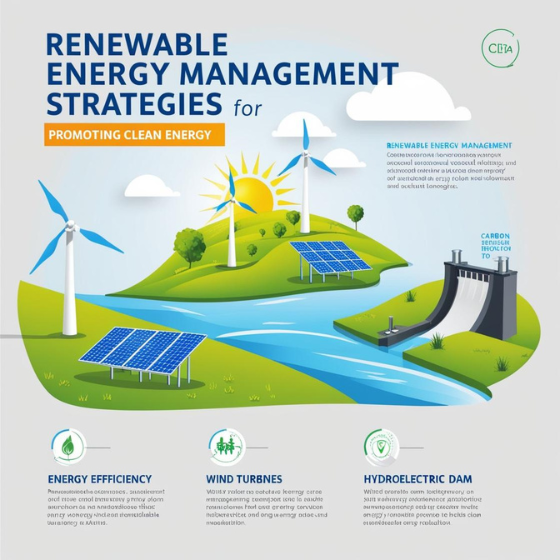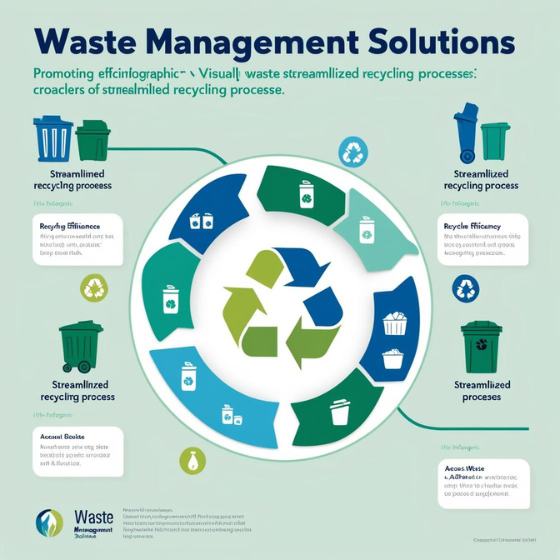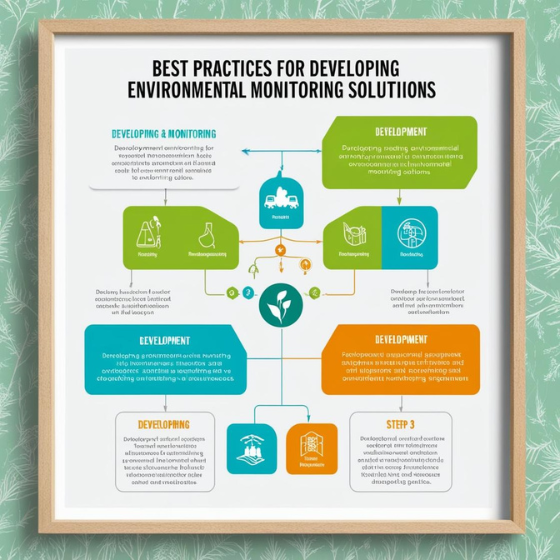Developing Efficient Waste Management Solutions
Efficient waste management solutions are crucial in today’s world, where waste generation is growing at an alarming rate. Businesses, municipalities, and organizations must develop systems that not only minimize environmental impact but also optimize operations, comply with regulations, and reduce costs. By leveraging modern technologies and best practices, waste management solutions can evolve into systems that are both sustainable and efficient.
This blog explores the essential steps and considerations for developing waste management solutions that meet the demands of modern waste challenges.
Understanding Waste Management Needs
1. Identify Waste Streams
A comprehensive understanding of the types of waste being handled is the foundation for developing efficient solutions.
Common Waste Types:
- Municipal Solid Waste (MSW): Household and commercial waste.
- Industrial Waste: Byproducts from manufacturing processes.
- Hazardous Waste: Chemicals, batteries, and other materials requiring specialized handling.
- E-Waste: Discarded electronic devices.
Pro Tip: Conduct a waste audit to determine the composition and volume of waste.
2. Set Clear Goals
Define objectives that the waste management solution will address, such as:
- Reducing waste sent to landfills.
- Increasing recycling and resource recovery.
- Ensuring compliance with local and international regulations.
Example: A manufacturing company may aim to recycle 70% of its waste by implementing efficient sorting and recycling systems.
Key Features of Efficient Waste Management Solutions
1. Smart Waste Monitoring
Real-time monitoring of waste levels and collection schedules using IoT-enabled devices ensures timely and efficient waste handling.
- How It Works:
- Sensors installed in waste bins transmit data on fill levels.
- This data optimizes collection routes, saving fuel and time.
Case Study: Smart bins deployed in Singapore have reduced waste collection costs by 40%.
2. Automated Sorting and Recycling
Automation plays a vital role in separating recyclable materials from non-recyclables with greater precision and speed.
- Technologies Used:
- AI-driven sorting systems identify materials like plastics, metals, and paper.
- Robotic arms automate the sorting process, reducing labor costs.
Example: Sweden’s recycling centers use automated systems that achieve a recycling rate of over 90%.
3. Waste-to-Energy Conversion
Transforming waste into renewable energy is a sustainable way to handle non-recyclable waste.
- Technologies:
- Incineration: Converts waste to heat and electricity.
- Anaerobic digestion: Processes organic waste into biogas.
Pro Tip: Prioritize energy recovery solutions for waste that cannot be recycled economically.
4. Data-Driven Decision Making
Using data analytics ensures that waste management strategies are continuously optimized.
- Benefits:
- Identifies inefficiencies in collection and disposal processes.
- Tracks key metrics such as landfill diversion rates and recycling percentages.
5. Compliance and Reporting Tools
Compliance with environmental regulations is essential for businesses and municipalities. Solutions should include features like:
- Automated reporting to meet regulatory requirements.
- Tracking of waste handling and disposal for transparency.
Steps to Develop Waste Management Solutions
Step 1: Conduct a Needs Assessment
Evaluate the specific waste challenges faced by the organization or community. This includes analyzing:
- Current waste generation and handling practices.
- Infrastructure gaps (e.g., lack of recycling facilities).
- Regulatory requirements.
Step 2: Design a Scalable System
Develop a solution that can grow with the needs of the organization or population.
- Modular Design: Create systems that allow for adding new technologies or expanding capacity.
- Adaptability: Ensure the system can handle changes in waste composition and regulations.
Step 3: Leverage Technology
Integrate advanced technologies for greater efficiency and transparency.
- Use IoT for monitoring and data collection.
- Implement AI for sorting and waste stream optimization.
- Explore blockchain for traceability and secure reporting.
Step 4: Engage Stakeholders
Involve key stakeholders—employees, communities, and regulators—in the development process.
Tips:
- Conduct workshops to educate stakeholders on proper waste segregation.
- Collaborate with local recycling companies and waste-to-energy providers.
Step 5: Test and Optimize
Before full deployment, pilot the solution to identify areas for improvement.
- Measure performance metrics such as collection efficiency, recycling rates, and operational costs.
- Refine the system based on pilot results for optimal performance.
Challenges in Waste Management Development
1. High Initial Costs
Advanced technologies like AI and IoT can be expensive to implement. However, long-term savings from operational efficiency often outweigh these costs.
2. Behavioral Barriers
Lack of awareness or resistance to change can hinder adoption. Robust education and outreach programs are essential to overcome these challenges.
3. Regulatory Complexity
Navigating varying local, national, and international regulations can be challenging. Staying updated on evolving laws is crucial for compliance.
Benefits of Efficient Waste Management Solutions
- Environmental Sustainability: Reduces pollution and conserves natural resources.
- Cost Savings: Optimized operations and resource recovery lower waste management expenses.
- Enhanced Reputation: Demonstrates a commitment to sustainability, improving brand image.
- Regulatory Compliance: Mitigates legal risks and penalties.
Conclusion
Developing efficient waste management solutions requires a holistic approach that combines technology, stakeholder engagement, and a commitment to sustainability. From IoT-enabled monitoring to waste-to-energy conversion, modern systems offer unparalleled opportunities to transform waste into valuable resources.
At Sodio, we specialize in creating customized waste management solutions that promote efficiency and sustainability.
Contact Sodio to learn how our innovative solutions can help you optimize waste management for your business or community.
